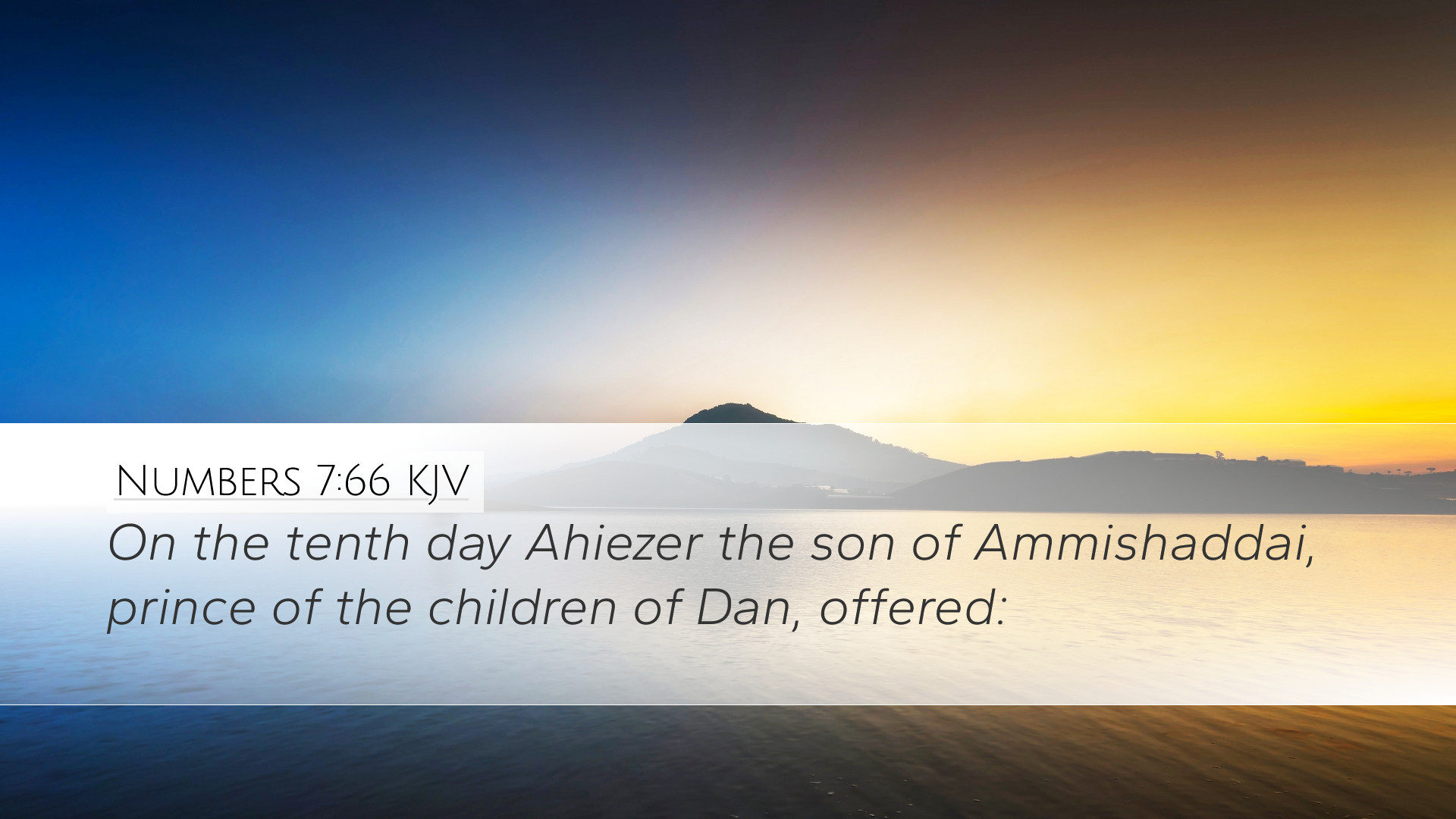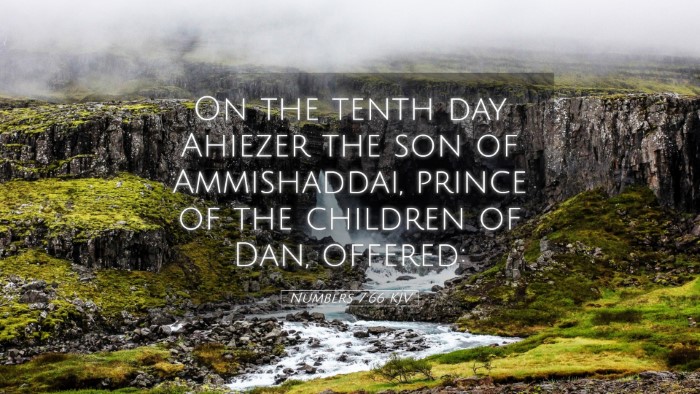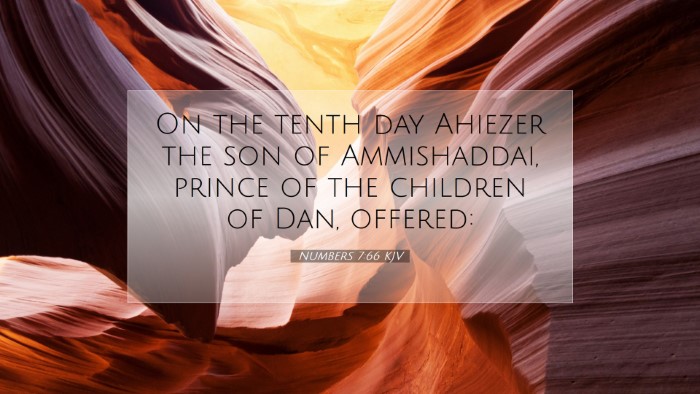Commentary on Numbers 7:66
Bible Verse: "The offering of the tribe of Manasseh: a golden charger of ten shekels, full of incense." - Numbers 7:66
Introduction
This verse is part of a larger passage in the Book of Numbers that details the offerings made by each tribe of Israel during the dedication of the altar. Each tribe presented their gifts, showcasing their devotion and contributions to the service of God. In examining this specific verse, we gain insights into the significance of the offerings and the implications for worship in the Old Testament.
Overview of Offerings in Context
The context of Numbers 7 describes the contributions of the twelve tribes of Israel as they came together to dedicate the altar. The offerings were elaborate and prescribed exactly by God, demonstrating the importance of obedience and participation in the communal worship practices established for the Israelites.
- Symbols of Worship: Each offering represented not only material wealth but also a spiritual commitment to God.
- Unity Among Tribes: The unified contributions from the tribes served to promote harmony and a collective identity among the Israelites.
- Heart of Worship: The offerings were meant to be presented with sincere hearts reflecting the individuals' faith and devotion.
Insights from Commentary
Matthew Henry
Matthew Henry emphasizes the significance of the tribe of Manasseh's offerings as showcasing their faith and commitment. He notes that despite the relatively small size of their offering compared to others, it was accepted by God as it came from the heart. He further explains that these offerings symbolize the principle of giving; it is not the quantity that matters but the quality of one’s intention in giving to God.
Albert Barnes
Albert Barnes elaborates on the concept of the "golden charger" mentioned in the verse, interpreting it as a representation of value and preciousness of the offerings made to God. He highlights the use of gold as a material indicative of purity and reverence, reinforcing the idea that offerings should reflect the holiness of the one being worshiped. According to Barnes, this particular offering by Manasseh signifies their acknowledgment of God’s sovereignty and provision over them.
Adam Clarke
Adam Clarke delves into the historical and cultural significance of the offering. He points out that such offerings were not merely ritualistic but were deeply entrenched in the community's identity and worship practices. Clarke also notes the proportion of silver and gold in the offerings, shedding light on the economic conditions of the tribe of Manasseh at the time. He suggests that the amount signifies a proper balance in their devotion, showcasing both reverence and accountability before God.
Theological Implications
The theological implications of Numbers 7:66 are profound. The verse speaks to the heart of worship and the importance of offering to God. It challenges modern readers and worshipers to consider the motivations behind their giving and the significance of offering one's best to God.
- Divine Acceptance: The offering is a reminder that what is deemed acceptable by God is based on the intention of the giver rather than the material weight of the offering itself.
- God's Provision: This act of giving reflects the understanding of God's provision and a desire to reciprocate the blessings received from Him.
- Worship as Community: The collective nature of the offerings indicates that worship is not an individual act, but a community endeavor aimed at glorifying God together.
Practical Applications for Today
For pastors, theologians, and students of the Bible, Numbers 7:66 can serve as a practical reminder of the nature of giving in worship. While the context may differ from the contemporary church, the principles remain applicable:
- Encouragement in Giving: Encourage congregations to give generously and joyfully, ensuring that their offerings are reflective of their genuine love for God.
- Teaching on Intentionality: Emphasize the importance of intent and commitment in acts of service and generosity, reminding that small acts done with love are invaluable in the eyes of God.
- Building Community: Foster a sense of unity and mutual support within the church through shared acts of giving and service, reminiscent of the tribes of Israel working together.
Conclusion
Numbers 7:66, though it may appear to be a simple record of an offering, serves as a rich text surveying the nature of worship, community, and God's expectations of His people. With insights drawn from the esteemed works of Matthew Henry, Albert Barnes, and Adam Clarke, we are reminded of the timeless relevance of this scripture. As we read and reflect, may our own hearts be stirred towards genuine worship that is poured out in every act of giving we perform.


